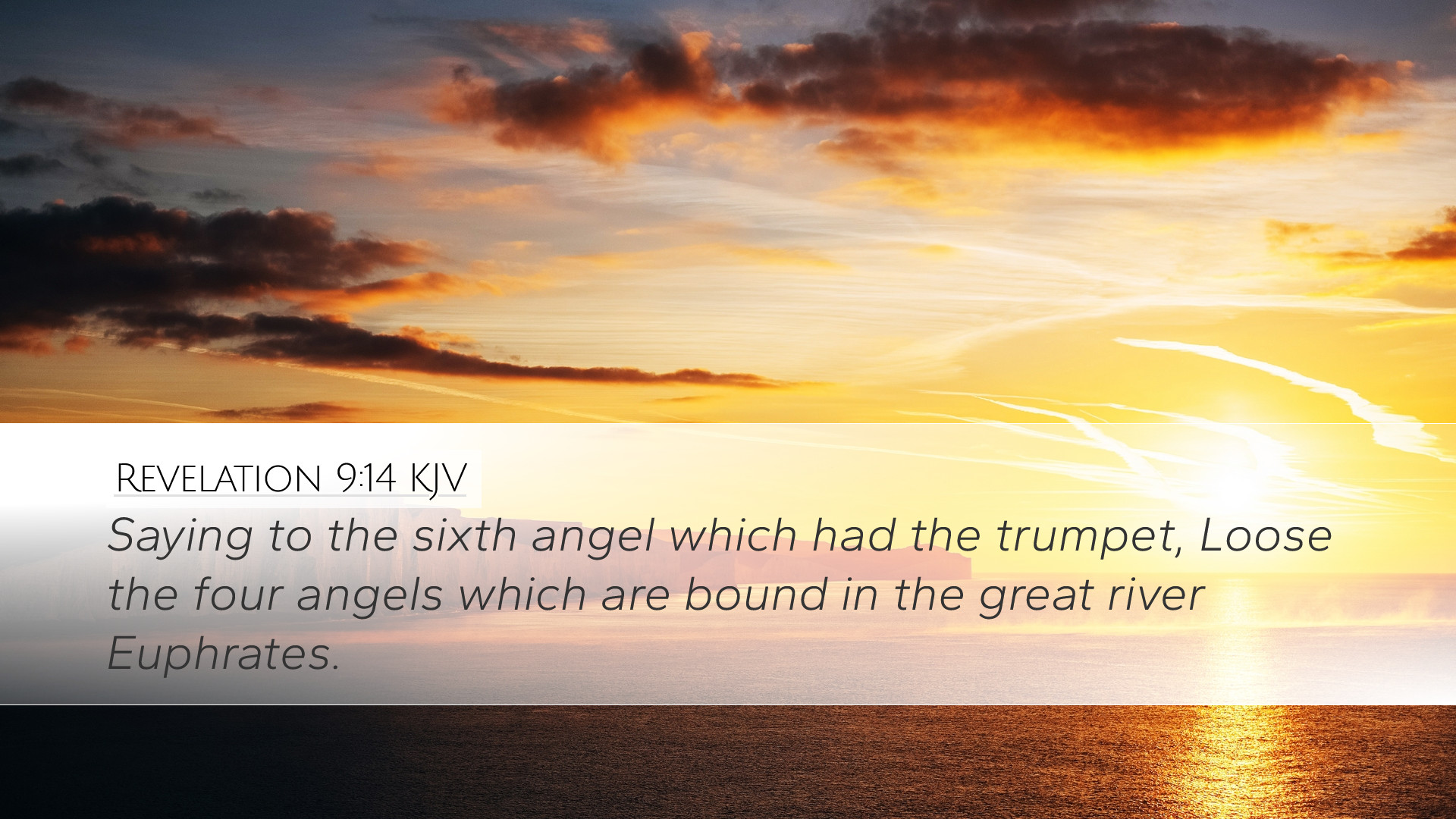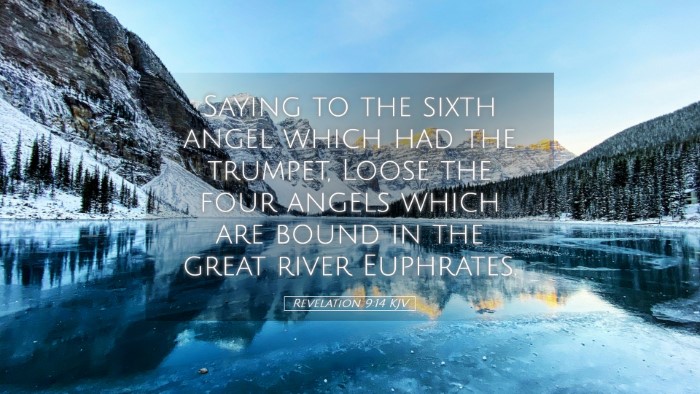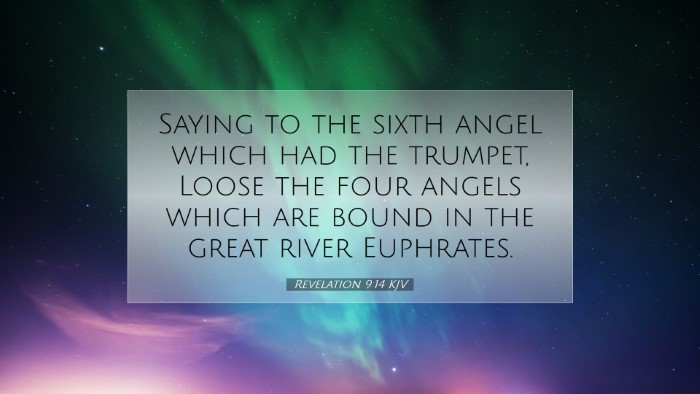Commentary on Revelation 9:14
Revelation 9:14 states: "Saying to the sixth angel which had the trumpet, Loose the four angels which are bound in the great river Euphrates." This verse is pivotal in the unfolding of apocalyptic events, revealing divine judgments and the roles of various spiritual beings.
Contextual Overview
This passage falls within the broader narrative of the seventh seal and the trumpet judgments, highlighting the climax of God's judgment upon the earth. The Euphrates River, a significant geographical marker in biblical texts, represents both a literal and symbolic barrier that once protected the ancient civilizations from hostile forces.
Historical Insight from Commentaries
Matthew Henry emphasizes the spiritual warfare and the release of these angels as a divine action that allows evil to manifest in a profound way. He remarks on the significance of the binding of these angels, indicating that their release signals a time of judgment on earth, a time when divine restraint is lifted and chaos ensues.
Albert Barnes points out that the four angels bound at the Euphrates symbolize significant forces of destruction. He posits that this releases a tide of evil that has been restrained, leading to immense suffering and tribulation. Barnes interprets this as part of God's sovereign plan, allowing for the final culmination of history and the ultimate deliverance of God's people.
Adam Clarke provides a more detailed exposition on the symbolism of the "four angels." He suggests that the number four represents universality and completeness, referring to the totality of God's control over the world. Clarke views the angels as executing God's judgment, further asserting that their binding implies a temporary restraint by divine authority, which is now being revoked for a specific purpose.
Spiritual and Theological Implications
This verse carries significant implications for understanding the nature of evil and the sovereignty of God. The act of loosing the angels indicates that all forces, even those representing chaos and destruction, operate under God's ultimate authority. This brings forward key theological themes such as:
- The Sovereignty of God: A reaffirmation that God orchestrates history and that even in judgment, He remains in control.
- The Reality of Spiritual Warfare: Acknowledgement that spiritual forces are at work, influencing both the temporal and eternal outcomes of humanity.
- The Nature of Judgment: God's judgments are purposeful, aimed at purging sin and driving humanity back to repentance.
Application for Believers
This passage challenges believers to wrestle with the concept of God's judgment and the reality of spiritual forces at play in the world. Pastors, students, and theologians should consider the following applications:
- Awareness of Spiritual Forces: A call to recognize that unseen forces influence the world, encouraging vigilance in prayer and spiritual readiness.
- Understanding God’s Judgments: An invitation to explore the purpose behind divine discipline and to reflect on personal and communal repentance.
- Hope in God’s Sovereignty: Assurance that, despite chaos, God’s ultimate plan prevails. Believers can find peace in His ultimate control.
Conclusion
Revelation 9:14 serves as a stark reminder of the reality of divine judgment and the accompanying release of spiritual forces. Through insights gathered from respected commentaries, we glean an understanding that, even amidst divine wrath, there is a purpose that ultimately aims to restore humanity to a right relationship with God. It serves as a cornerstone for continued study on eschatology and a deeper reflection on the nature of God’s kingdom.


